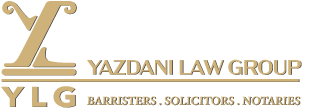Canada’s Start-up Visa Program targets “immigrant entrepreneurs” with the skills and potential to build businesses in Canada.
Unlike programs in other countries, we do not provide “temporary” or “conditional” status. Successful applicants to this program will be able to immigrate to Canada as permanent residents with no conditions attached to the success of their business[1].
A start-up business must be a new business intended to be operated in Canada which meets the criteria of a qualifying business, meaning that the new start-up business has received a commitment from (a) a designated angel investor group confirming that it is investing at least $75,000 in a qualifying business or two or more designated angel investor groups confirming that they are together investing a total of at least $75,000 in such a business; or (b) a designated venture capital fund confirming that it is investing at least $200,000 in a qualifying business or two or more designated venture capital funds confirming that they are together investing a total of at least $200,000 in such a business; or (c) a designated business incubator confirming that it is accepting the applicant into its business incubator program[2].
Division 2 of Part 6 of the Immigration and Refugee Protection Regulations https://laws-lois.justice.gc.ca/eng/regulations/sor-2002-227/page-23.html, which was recently amended in 2018, covers law and regulations about Canada Start-Up Business Class. This article aims to provide a guideline about how an immigration officer assesses and processes an application under this class.
#1 NO intend to reside in Quebec
Individuals who intend to reside in Quebec are not eligible to apply under the Start-up Business Class.
#2 The principle of procedural fairness
In Canada, the principle of procedural fairness requires that decision-makers follow the rules of procedural fairness throughout the decision-making process. While the requirement for procedural fairness applies to all types of immigration and citizenship applications, including the Start-Up Class, procedural fairness requires that applicants to[3]:
- be provided with a fair and unbiased assessment of their application,
- be informed of the decision maker’s concerns, and
- have a meaningful opportunity to respond to concerns about their application
#3 The commitment certificate must be in a written or electronic form
Under 98.04 (1) of the IRPR, a commitment certificate issued from a Designated Organization (DO) must be in a written or electronic form acceptable to the IRCC. It must be provided by a person who has the authority to bind the DO. A commitment is sent electronically to IRCC from the DO along with the term sheet/client agreement.
By contrast, a Letter of Support is a letter (form) given to the applicant by the DO, which the applicant must include with their application.
Each Letter of Support is valid for six months from the date it was issued. It means that the IRCC must receive the application for permanent residence under the Start-up Business Class within six months of the Letter of Support being given.
#4 No fee for reviewing or assessing the business by the DO
Section 98.04 (2) of the IRPR confirms that there cannot be any fees for the commitment certificate. Therefore, a commitment does not respect the regulations if the entity that made it charges a fee to review and assess the business proposal or to assess the business.
Moreover, if there are multiple applicants under 98.04 (3), the commitment must (a) include information on each applicant; and (b) identify those applicants that the entity committing considers essential to the business.
#5 The commitment certificate may be conditional on the issuance of a permanent resident visa, but the PR is not dependent on the business to be successful
Section 98.04(4) provides if there is more than one applicant in respect of a commitment, the commitment may be conditional on the issuance of a permanent resident visa to one or more of those applicants.
It is essential to high light that the PR status under this class has no conditions attached to it; therefore, being a successful business in Canada is not a condition.
#6 Qualifying business and person for the Start-Up Class must be incorporated in Canada
Section 98.06 (1) provides that a qualifying business must meet four elements concerning an applicant is one (a) in which the applicant offers active and ongoing management from within Canada; (b) for which an essential part of its operations is conducted in Canada; (c) that is incorporated in Canada, and (d) that has an ownership structure that complies with the percentages established.
While the fourth element is mandatory at the time of the PR application, under paragraph 2 of the section, a business that fails to meet one or more of the requirements of paragraphs (1)(a) to (c) is nevertheless a qualifying business if the applicant intends to have it meet those requirements after they have been issued a permanent resident visa.
The IRCC provides each applicant must hold 10% or more of the voting rights of the qualifying business, which are attached to all shares of the corporation outstanding at that time whereas up to 5 people can apply as owners, and applicants and the designated organization jointly hold more than 50% of the total voting rights attached to all shares of the corporation outstanding at that time
Section 98.07 (1) provides the Start-Up visa applicant must provide documentation to establish that they are a member of the start-up business class, including (a) written or electronic evidence, provided the DO on the day on which the application is made, that indicates that the DO made a commitment with the applicant; (b) the results of a language proficiency evaluation referred to in paragraph 98.01(2)(b); and (c) written or electronic evidence that they have the funds required under paragraph 98.01(2)(c). For example, $24,083 for a family of 4 people.
An applicant must meet the minimum level of the Canadian Language Benchmark (CLB) 5 in either English or French in all four areas.
In evaluating an application, an immigration officer may require the production of documents that are in the possession or control of the applicant or of the DO, making the commitment and that relate to the applicant, the commitment of the business.
#7 The commitment certificate will be assessed by an immigration officer
Section 98.08 (1) provides if the officer is not satisfied that the entity assessed the applicant and the applicant’s business in a manner consistent with industry standards or is not satisfied that the terms of the commitment are consistent with industry standards, the officer may refuse to issue the permanent resident visa.
#8 If the application of the essential to the business is refused or withdrawn, other applicants cannot meet the requirement of the class
Section 98.08 (2) provides that if the are more than one applicant in respect of the same business. One of the applicants who was identified in the commitment as being essential to the business is refused a permanent resident visa for any reason or withdraws their application, the other applicants must be considered not to have met the requirements of subsection 98.01(2), and their permanent resident visa must also be refused.
[1] Read more online https://www.canada.ca/en/immigration-refugees-citizenship/corporate/publications-manuals/canada-wants-entrepreneurs.html
[2] Read more online https://www.canada.ca/en/immigration-refugees-citizenship/services/application/application-forms-guides/guide-5759-application-permanent-residence-business-immigration-program-start-business-class.html
[3] Read more online https://www.canada.ca/en/immigration-refugees-citizenship/corporate/publications-manuals/operational-bulletins-manuals/service-delivery/procedural-fairness.html%23right-to-be-heard

